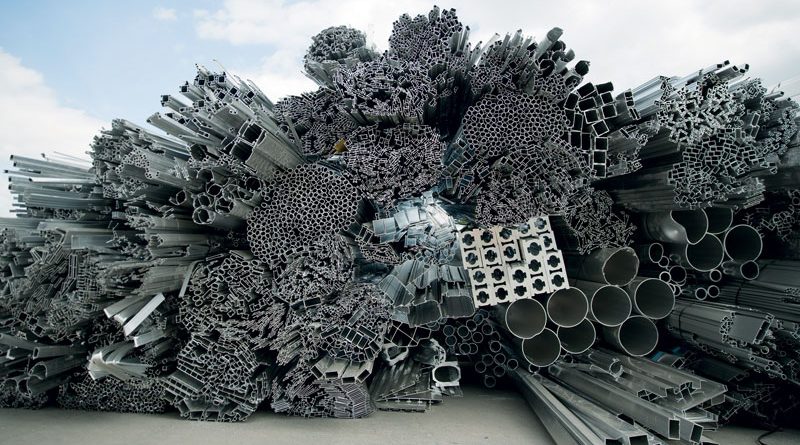Demand for Green Aluminium Is Growing Worldwide
Low-carbon aluminium is one of fastest-growing segments in the market. Hydro expects its sale more than double this year, driven by automotive and low-carbon construction
by Roberto Guccione
While overall global aluminium demand is largely stagnant, the main aluminium producers found that customers in Europe, North America and elsewhere are increasingly willing to pay more for metal that can help to lower their carbon footprint.
In fact, having taken note of the urgent need to combat climate change, many stakeholders in the worldwide aluminium value chain are already deeply involved in several initiatives aimed at clean and sustainable production of one of the most Earth-friendly raw materials currently available. Complimenting aluminium producers’ push for sustainability are aluminium buyers, many of whom are taking steps of their own to scale back or eliminate entirely their net carbon emissions. Customers in various industries, such as automotive and building and construction, increasingly have higher sustainability demands for their materials, triggered by regulations and rating programs. Well aware of what the industry needs, aluminium producers have been addressing the need for low-carbon aluminium materials with intensive research and development activities. These activities have led to the introduction of lightweight materials that are highly competitive in terms of carbon footprint and life-cycle analyses.
New low-carbon aluminium brands
In 2017, U.C. RUSAL launched its new low-carbon aluminium brand ALLOW, which is a primary aluminium product, containing less than 4 tonnes of CO2 equivalent per tonne of aluminium (scope 1 and 2 emissions at the smelter), compared to an industry average of around 13.4 tonnes of CO2 equivalent per tonne of aluminium. RUSAL has seized on the opportunity to utilize its unique access to clean, renewable hydropower to provide a product with a much reduced carbon footprint. RUSAL’s ALLOW is independently verified by the Switzerland based sustainability consulting group Quantis as well as by the British Standard Institution (BSI), and is traceable to the specific smelter used.
Hydro launched new greener brands CIRCAL 75R and REDUXA in 2018 and 2019.
The two new greener brands are made from recycled post-consumer scrap or primary metal from hydro-powered smelters. Both are certified materials with details of CO2 footprint and fully traceability of the materials. Hydro REDUXA is a series of certified, low-carbon primary aluminium with a maximum carbon footprint of 4.0 tonnes of CO2 per tonne of aluminium. Hydro CIRCAL is a range of prime quality aluminium made with a minimum of 75% recycled, post-consumer scrap and a certified carbon footprint below 2.3 tonnes of CO2 per tonne aluminium. The percentage of scrap will change depending on specifications from the client; the higher the recycled content of post-consumer scrap, the lower the carbon footprint.
Since it was first introduced, Hydro’s business area Extruded Solutions, which supplies facades and building solutions to the building and construction industry, has gone all-in on selling these greener aluminium brands. Hydro recently passed a milestone of 40 big and small building projects around the world using Circal facades. An example is Økern Portal, one of Norway’s largest development projects, which uses about 300 tonnes of Circal aluminium in its facades. Hydro’s Building Systems unit uses an estimated 80,000 tonnes of aluminium per year to make facades and windows. In 2020, it expects to utilise 25,000 tonnes of the Circal aluminium, up from 10,000 tonnes last year.
“In 2021 we forecast a sale of 40,000-50,000 tonnes of Circal. The volumes are still small in the big picture of the global aluminium market, but this is currently one of Hydro’s fastest-growing segments. By the end of 2020, all of Building Systems’ products and solutions in Europe will be available in Circal and Reduxa, and we expect demand for low-carbon aluminium to grow in the years to come”, said Egil Hogna, who heads Hydro’s Building Systems business area.
This year, Hydro will ramp up production of Circal by increasing annual capacity to 25,000 tonnes with an upgrade and expansion of the Azuqueca recycling plant in Spain. The cost of making the metal, including the purchase, sorting and cleaning of scrap, is still 10-20% higher than for primary aluminium however, and is a barrier to sales in some industries.
In construction, however, the cost of a building’s facade also comes from window panes and other materials as well as labour, and using Circal may then add a more modest 2-3% to the bill.
“But it’s the aluminium in it that makes the big difference in terms of CO2CO2 footprint. To customers, who must choose between similar-looking products, the lower emissions caused by using Hydro’s Circal metal has thus increasingly outweighed the higher price”, Hogna added.
The European Commission’s sustainability targets require all new buildings to operate at net zero carbon emissions by 2030 – and all buildings by 2050. Hydro’s Circal 75R is enabling builders and architects to meet the most demanding sustainability targets.
Elysis, the carbon-free smelting process
Apple Inc has purchased the first carbon-free aluminium from the joint venture of Alcoa Corporation and Rio Tinto in December 2019. The carbon-free aluminium was produced at the Alcoa Technical Centre in Pittsburgh. The aluminium is being made by Elysis, a Montreal-based joint venture between Alcoa Corporation and Rio Tinto. The joint venture was formed with $144 million in funding from Alcoa, Rio Tinto, Apple and the governments of Canada and Quebec.
In 2018, Alcoa Corporation and Rio Tinto, supported by technology giant Apple, announced they would develop and commercialise a new aluminium smelting process that eliminates all direct greenhouse gas emissions from the traditional smelting process. The joint venture wants to commercialize a technology by 2024 that uses a ceramic anode to make aluminium and emits only oxygen. Vincent Christ, President and CEO of Elysis said: “This sale is an important milestone for Elysis and a sign of our progress over our first year of operation. It confirms the market interest in aluminium produced using our breakthrough carbon free smelting technology. We are continuing to progress further development of our technology, with our focus on bringing it to market to revolutionise the industry”.
Alf Barrios, Rio Tinto Aluminium chief executive said: “Rio Tinto is proud to help deliver through our commercial network the sale of the industry’s first aluminium produced using carbon free smelting technology. This is another important step towards zero carbon aluminium and a more sustainable future”.

